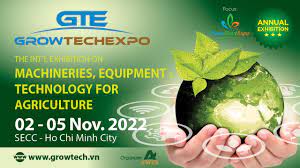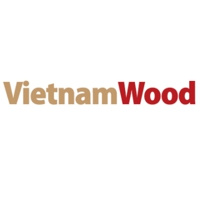- Read all
- Rice
- Fisheries
- Cassava
- Fertilizer & Pesticide
- Coffee
- Animal Feed
- Cocoa
- Seed
- Tea
- Wood
- Pepper
- Agricultural Cooperations
- Cashew
- Agricultural Investments
- Rubber
- Governmental Policies
- Sugarcane
- Agricultural Startup Ecosystem
- Corn
- Technological Innovations
- Spices
- Organic Agriculture
- Bean
- Food Manufacturing
- Fruit & Vegetable
- Agricultural Value Chain
- Flower
- Water & Waste Management
- Meat
- Processed Food
- Dairy
- Plant Originated Products
- General Agro Commodities
- Animal Originated Products
Low Latex Prices Boost Vietnam’s Rubber Exports
December 7, 2015
By the end of May 2015, the average selling price of rubber in Vietnam was US$1,442 per ton, down from over US$2,000 per ton in early 2014. Prices have been averaging under US$1,500 per ton since October 2014. Compared to exports in April 2015, exports in May rose 53.3 percent in volume and 57.2 percent in value. In May, low prices spurred Vietnam on to export 80,485 tons of natural latex, reaching a total of 330,059 for the first five months of 2015. In May, synthetic rubber exports reached 38,145 tons.
In 2015, much of Vietnam’s rubber exports have gone to neighboring China and Malaysia, which had imported 160,430 and 54,244 tons of Vietnamese rubber respectively in the first five months of the year.

According to Vietnam’s Ministry of Agriculture and Rural Development (MARD), in 2014, Vietnam’s two biggest latex importers, including China and Malaysia, imported 43.5 percent and 19.4 percent of Vietnam’s total export respectively, minor drops of 3.4 percent and 8.5 percent respectively from 2013 levels. Vietnam’s latex exports to other core markets, such as India, German and Korea, also dropped over the course of the year. In contrast, exports to Sri Lanka, Turkey, and the U.S. quadrupled in 2014.
In response to the falling latex price, the Vietnam Rubber Association (VRA) had advised its members not to supply latex at any price lower than US$1,500 per ton, with an aim to stop the plunge. In the recent notice sent to International Rubber Consortium (IRCo), VRA has mentioned its members and Vietnamese farmers struggling with the low prices. In response to this, Thailand, Malaysia and Indonesia – the top three nations exporting 70 percent of the world’s rubber – intend to restrict supply in order to to help raise the price of the substance.
Vietnam’s Agriculture Minister Cao Duc Phat met recently with his Thai counterpart Petipong Pungbun na Ayudhya to discuss how to improve the rubber prices in the near future and how to work together with the International Tripartite Rubber Council (ITRC) and International Rubber Consortium (IRCo) to stabilize the rubber’s price.
Vietnam’s Ministry of Finance brought in tax incentives in 2014 granting some rubber products zero export tax, a decrease from the previous one percent tax. These products include balata, natural rubber, and synthetic rubber.
Related news
-
Coffee price today October 31: Still low at 41,000 VND/kg
Coffee prices today October 31, 2022 in the world and domestic markets continue to move sideways. Currently, the domestic coffee price is still maintaining at 40,400 - 41,000 VND/kg.October 31, 2022 -
Dak Lak dedicates thousands of hectares to durian production for export
Dak Lak Provincial People's Committee held a conference on October 26 to manage, monitor and develop the codes for planting areas and export packaging facilities in the area.October 27, 2022 -
Bac Giang lychee is qualified to export to all markets
Through the results at Eurofins Testing Center, 821 indicators of pesticide residues of Bac Giang lychee were satisfactory.November 4, 2022 -
Growing organic oranges is difficult to do but the price is twice as high
Tuyen Quang In this year's orange crop, organic orange growers in Ham Yen district (Tuyen Quang) earned hundreds of millions of dong in profit because oranges were well priced and accepted by the demanding market.November 24, 2022 -
Analysis: Factors driving world rice prices in the coming time
Movements from India and China, the Russia-Ukraine conflict, droughts in Brazil and Paraguay can all affect the global rice marketNovember 18, 2022
Events See more

Vietnamplas 2022 - Vietnam International Plastic and Rubber Industry Exhibition
23-03-2023 - 26-11-2022 09:00 - 17:00
Saigon Exhibition and Convention Center (SECC) – 799 Nguyen Van Linh Boulevard, District 7, City. Ho Chi Minh.

GROWTECH EXPO - FLORAPLANTEXPO 2021
02 - 05-11-2022 09:00 - 17:00
Saigon Exhibition and Convention Center (SECC) – 799 Nguyen Van Linh Boulevard, District 7, City. Ho Chi Minh.

VTG 2022
18 - 25-10-2022 09:00 - 17:00
Saigon Exhibition and Convention Center (SECC) – 799 Nguyen Van Linh Boulevard, District 7, City. Ho Chi Minh.

VIETSTOCK 2022 - SPECIALISED EXHIBITION OF LIVESTOCK, FEED AND MEAT PROCESSING IN VIETNAM
12 - 14-10-2022 08:00 - 17:00
799 Nguyen Van Linh, Tan Phu Ward, Dist. 7, Hochiminh City, Vietnam

VTG 2022
21 - 27-09-2022 09:00 - 17:00
Saigon Exhibition and Convention Center (SECC) – 799 Nguyen Van Linh Boulevard, District 7, City. Ho Chi Minh.
.png)
VIETFISH 2022
22 - 26-08-2022 09:00 - 17:00
Saigon Exhibition and Convention Center (SECC) – 799 Nguyen Van Linh Boulevard, District 7, City. Ho Chi Minh.
Business Opportunities See more
-
BURANI INTERFOOD is looking for Buyers in Vietnam
Type:
November 22, 2021
-
BURANI INTERFOOD is looking for Buyers in Vietnam
Type: Wholesaling Meat
November 22, 2021
-
BURANI INTERFOOD is looking for Buyers in Vietnam
Type: Wholesaling Meat
November 22, 2021
-
BURANI INTERFOOD is looking for Buyers in Vietnam
Type: Wholesaling Meat
November 19, 2021
-
BURANI INTERFOOD is looking for Buyers in Vietnam
Type:
November 19, 2021
-
Indian purchaser looking for high quality cashew nut kernel from Vietnam
Type: Exporting Cashew
Mar 14, 2016
534
Limitless database of qualified and verified agricultural partners
124
Exclusive buy & sell leads on specific agricultural commodities
24
Agricultural events in Vietnam and Asia Pacific region
Stay informed!
Enter your email address below to receive updates each time we publishes new content
